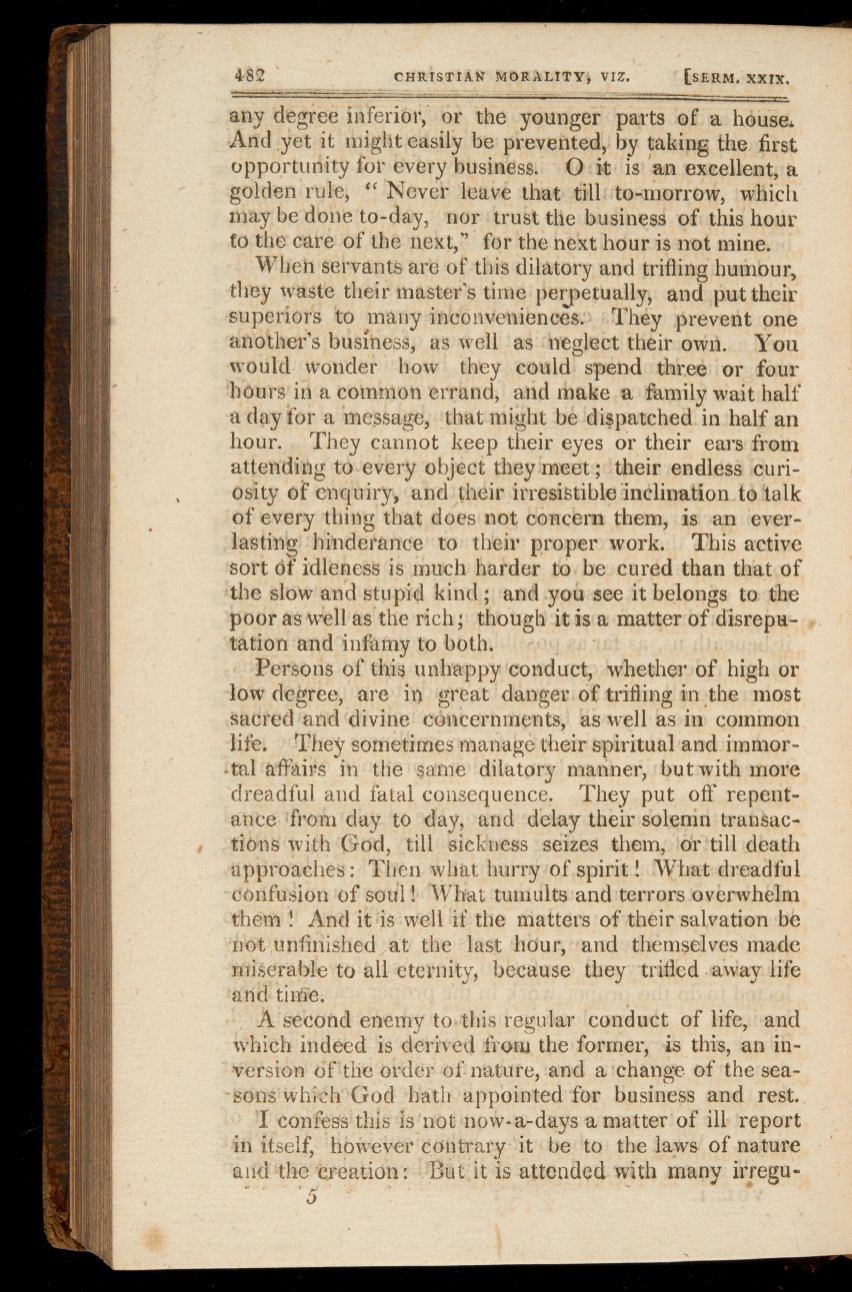

482
CHRISTIAN MORALITY,
VIZ.
[SERM.
XXIX.
any degree
inferior, or
the
younger parts of a
house
And
,yet
it
might easily be
prevented,
by
taking
the first
opportunity
for every
business.
O
it
is
an
excellent,
a
golden rule,
"
Never leave that
till to-morrow, which
may
be
done
to -day,
nor
trust
the business
of
this
hour
to
the care
of
the next," for
the next
hour
is
not
mine.
When
servants are of
this
dilatory
and trifling humour,
they waste their master's time
perjetually,
and
put their
superiors to
many inconveniences.
They
prevent
one
another's
business,
as well
as
neglect their
own.
You
would wonder
how
they
could spend three or
four
hours
in
a
common
errand,
and make
a
family wait
half
a
day for
a
'message,
that
might
be
dispatched
in
half an
hour. They cannot keep their
eyes
or their
ears from
attending
to
every object they
meet
;
their
endless curi-
osity
of enquiry, and
their irresistible inclination
to
talk
of
every thing
that
does
not
concern
them,
is
an ever-
lasting
hinderance
to
their proper
work.
This
active
sort
Of
idleness
is
much
harder
to be
cured than
that of
the
slow
and stupid
kind
;
and
you
see
it
belongs
to
the
poor
as well as
the
rich;
though
it
is
a
matter of disrepa-
tation and
infamy
to
both.
Persons
of
this
unhappy
conduct, whether
of
high
or
low
degree,
are
in
great danger of
trifling
in
the most
sacred and
divine concernmonts, as
well as in
common
life.
They
sometimes manage
their spiritual
and immor-
tal
affairs
in
the same dilatory manner,
but
with
more
dreadful
and fatal consequence. They
put
off
repent-
ance
from day to
day,
and
delay
their
solenn
transac-
tions
with
God,
till sickness
seizes
them,
or
till
death
approaches: Then
what hurry
of spirit
!
What
dreadful
confusion
of
soul
!
What tumults
and
terrors
overwhelm
them
!
And
it
is
well if
the
matters
of their
salvation
be
not
unfinished
at
the
last
hOur,
and
themselves
made
miserable to
all
eternity, because they
trifled away
life
and
time.
A
second enemy
to_this
regular conduct
of
life,
and
which
indeed
is
derived
from the former, is this,
an in-
version
of
the
order
of
nature, and
a
change
of
the sea
-
sons
which
God bath appointed
for business
and
rest.
I
confess this
is
not
now
-a
-days
a
matter
of
ill
report
in
itself,
however
contrary
it
be
to the
laws
of
nature
and
the
creation:
But it
is
attended
with many
irregu-
J

















